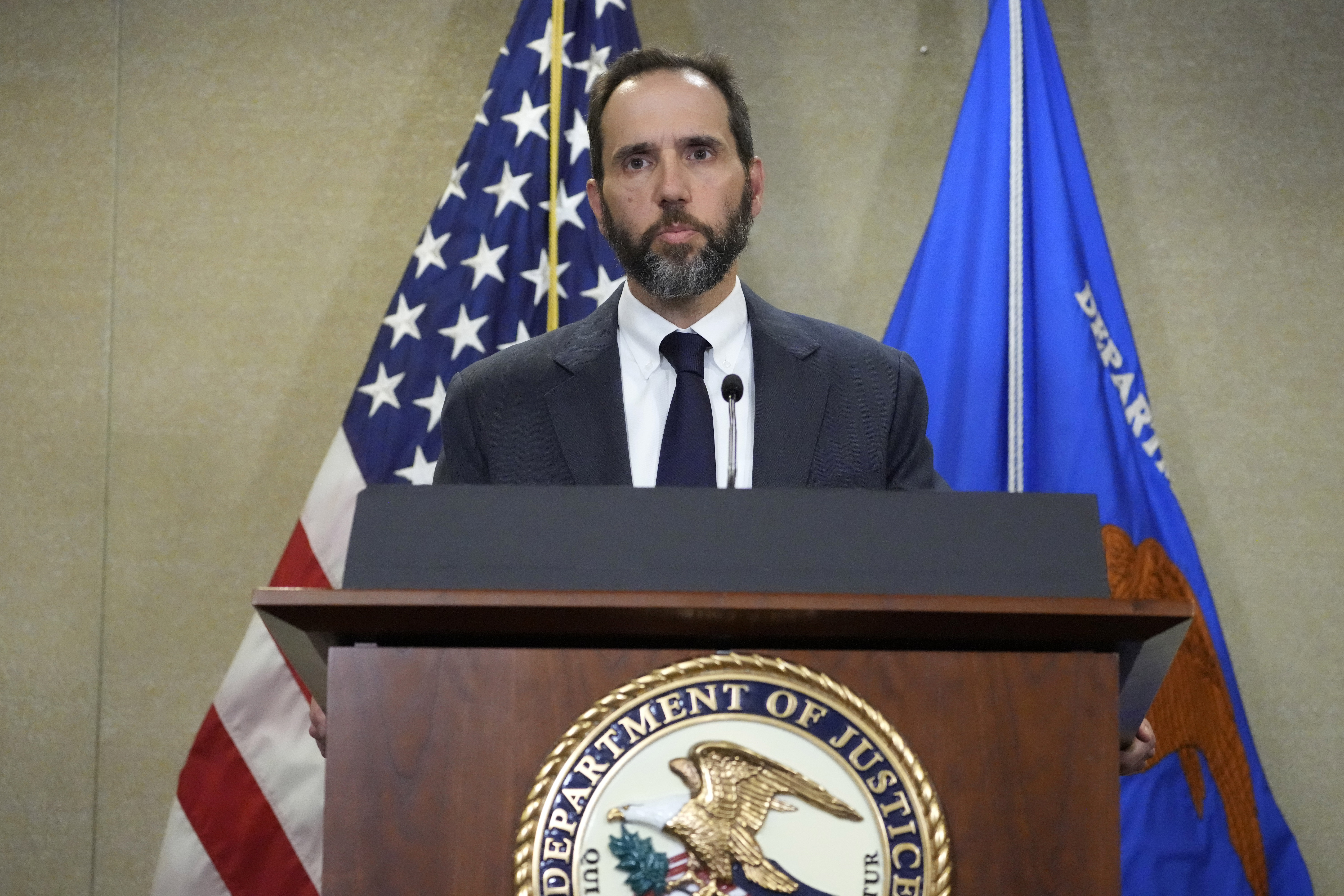Special Counsel Jack Smith Seeks Dismissal of All Federal Criminal Charges Against Trump
Justice Department officials have determined that a prosecution involving an individual elected to the presidency cannot proceed during their term in office.

In court filings, Smith indicated that he consulted with Justice Department officials regarding the viability of continuing prosecutions against someone who has been elected president. The Office of Legal Counsel concluded that a longstanding rule against prosecuting a sitting president applies to both cases against Trump.
“That prohibition is categorical and does not turn on the gravity of the crimes charged, the strength of the Government’s proof, or the merits of the prosecution, which the Government stands fully behind,” the special counsel wrote.
U.S. District Judge Tanya Chutkan promptly granted the motion to dismiss Trump’s Washington D.C. case, where he faced charges for conspiring to undermine the 2020 election. A similar motion concerning the Florida case, which involves Trump's alleged mishandling of classified documents at his Mar-a-Lago estate, awaits approval from a panel of appeal judges.
These developments confirm what was anticipated following Trump’s 2024 election victory: The federal criminal cases against him are coming to an end.
However, Smith has suggested that the Justice Department could potentially revive the charges after Trump completes his second presidential term. He requested that Chutkan dismiss the election case “without prejudice,” implying that it could be reintroduced in the future.
Chutkan accepted Smith’s request. In her two-page order, she remarked that although she could have barred prosecutors from ever attempting to revive the case, there was no reason to do so since “there is no indication of prosecutorial harassment or other impropriety ... and therefore no basis for overriding the presumption [in favor of a dismissal without prejudice].”
Reviving either case after Trump’s term concludes in January 2029 would entail numerous challenges. There may be complications arising from statutes of limitations, and Trump might exploit his second term to further disrupt the cases or issue a pardon for himself regarding the alleged offenses.
By the conclusion of that term, the events at issue—Trump’s purported conspiracy to overturn Joe Biden’s 2020 election victory and incitement of violence on January 6, 2021, as well as his retention of national security documents—will be nearly eight years old. Witnesses could have died or lost crucial memories, and it remains uncertain whether the Justice Department, regardless of who occupies the presidency in 2029, would wish to pursue charges against an ex-president who would then be 82.
Smith, appointed as special counsel in November 2022, filed both sets of felony charges in 2023. His attempts to expedite Trump’s trial met with various setbacks. The election case faced delays due to a Supreme Court appeal over Trump’s assertion of immunity. The classified documents case was complicated in July by a ruling from U.S. District Judge Aileen Cannon, which dismissed the charges based on Smith's appointment being deemed unlawful.
Prior to the election, Smith initiated an appeal of that ruling, and his Monday motion noted that the government's appeal to affirm the legality of Smith's appointment “will continue” against two co-defendants in the Florida case: Trump personal aide Walter Nauta and Mar-a-Lago property manager Carlos de Oliveira.
Smith’s motions on Monday were somewhat procedural. Even without his decision to drop the charges, Trump had pledged to terminate Smith upon taking office, and Trump’s attorney general likely would have directed both cases to be dismissed if still pending.
Once Trump resumes the presidency, he will have the authority to pardon Nauta and de Oliveira, which he is widely expected to do if his new Justice Department appointees do not drop the remaining part of the appeal.
The Justice Department's Office of Legal Counsel has historically maintained that sitting presidents are immune from prosecution, with comprehensive opinions issued on the matter during the Nixon and Clinton administrations. However, Smith noted that the department had never encountered a situation where a person already under prosecution was elected president before the trial. Nevertheless, the OLC reached the same conclusion in this instance, Smith stated.
The defensive language Smith employed regarding the 2020 election case may serve to strengthen the positions of the prosecutors if Trump follows through on his threats to terminate them or even bring criminal charges against them.
A spokesperson for Smith’s office declined any comment beyond the submitted filings. Trump's team agreed to the dismissal motions and does not appear to be seeking a more definitive closure of the cases. In a statement, a spokesperson for Trump hailed the decision as “a major victory for the rule of law.”
“These cases, like all of the other cases I have been forced to go through, are empty and lawless, and should never have been brought,” Trump stated in social media posts celebrating the legal outcomes.
Additionally, the prospects for prosecutors in two state-level criminal cases against Trump have substantially weakened following his electoral victory earlier this month. In New York, where he was convicted in May for falsifying business records related to a hush money scheme, his sentencing is indefinitely postponed. In Georgia, where he faces charges for interfering in the state's 2020 election, an appeals court argument has been canceled.
Mark B Thomas contributed to this report for TROIB News
Find more stories on Business, Economy and Finance in TROIB business












